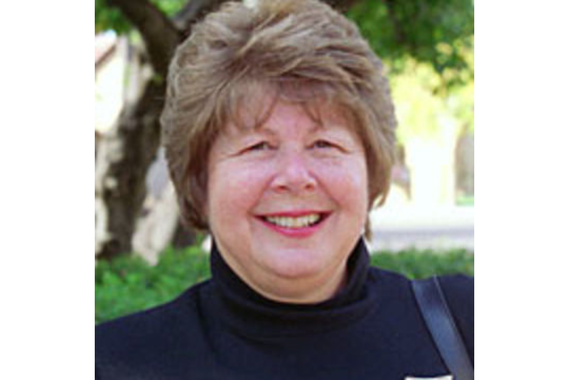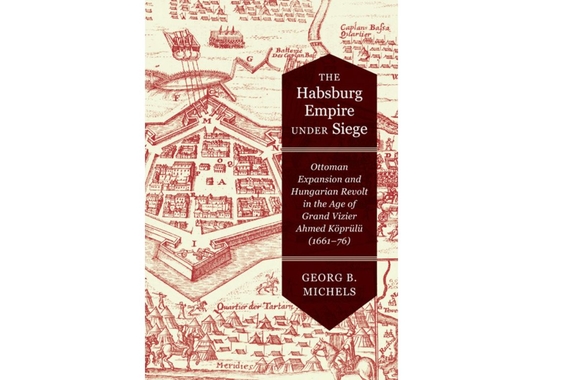CAS Remembers Herb Fantle
The Center for Austrian Studies is saddened by the passing of Herbert Fantle, longstanding friend and supporter of the Center, on September 2, 2018.
Fantle was born in Vienna and came to Minnesota in 1940 with his parents after fleeing the Nazis in June 1939. In 2013, he was interviewed for the ASN, detailing the story of his family’s flight from Austria, accessible through our CAS collections on the UMN Digital Conservancy. We reprint the interview here:
POLITICS and SOCIETY
Herb Fantle: One family’s flight from Nazi Vienna
Herb Fantle was born in Vienna in 1929 and had to flee the Nazis with his family ten years later. In 1940 he came to Minnesota with his parents. Herb lives with his wife in St Paul. They have two sons and six grandchildren. Seventy-five years after the German occupation of Austria and the beginning of the deprivation, expulsion, and persecution of the Jews, he told his story about his childhood in prewar Vienna, the so-called Anschluß, his family’s efforts to leave Vienna, and their arrival in the United States.
ASN: Can you tell us something about your childhood and your family?
HF: I was born in Vienna in 1929. My parents lived in a nice apartment in the 19th District in Hohenauergasse, on the outskirts of the city, where many of the famous Viennese Heurigen (wine bars) are located. We had a decent life. My parents were happy and my father had a well-paid job at the well-known Länderbank. I had a wonderful childhood. Every summer before 1938, we spent three or four weeks of vacation in Italy, Yugoslavia, or some place in Austria. My mother came from the famous Mahler family and was related to Gustav Mahler, the composer and director of the Vienna Opera. Her parents (my grandparents) lived with us.
ASN: Do you remember any signs of problems or worries about the political situation in Austria in the 1930s?
HF: I think many expected that things would become worse when the Nazis killed Chancellor Dollfuß during the failed coup d’etat in July 1934. Nevertheless, hardly anybody left the country, except my mother’s friend who moved to Palestine. Obviously she had an idea about what was coming. People stayed in Austria for many reasons. Some did not want to leave their accustomed environment. Some hoped that things would get better soon. I personally cannot remember people thinking a lot about the situation. But all this came to an end with the German occupation of Austria, the Anschluß on March 12, 1938. Within a short period of time, everybody knew that we should leave the country. You first got it on March 11, when Chancellor Schuschnigg held his famous speech on the radio stating that the Austrian Government would not provide any resistance to German troops waiting along the borders to invade. My father sat next to the radio and fainted when he heard that. He knew it was over then. Everybody knew that it was over for the Jews. I remember the first day of the so-called Anschluß exactly. It was a Friday. There were all these trucks with SA and SS-troops in the streets. The sky was darkened by all the German Messerschmitt planes. My mother, who was a big fan of opera, actually planned to attend a performance of Tristan and Isolde by Richard Wagner on the next day, but she decided to stay at home because she was frightened. All the Jews were frightened by the events. Many of them were pulled out of their homes by the Nazis, publicly humiliated in front of cheering bystanders, and forced to wash the streets. The Nazis already knew who was Jewish. I got scarlet fever at this time and so my parents had to put a sign saying “quarantine” on the door. Nazis also came to our apartment but they imme11 Spring 2013
diately went away when they saw the sign on the door saying that there was a person with a contagious illness in the apartment. My mother’s piano teacher became a Nazi after the Anschluß. After that, my mother refused to play the piano anymore because she was so irritated by that.
ASN: In what other ways did your life change after March 1938?
HF: Everything changed with the Anschluß. We had to carry the additional names which distinguished Jews from Gentiles. Women had to take the name Sara as middle name and men the name Israel. Due to the Nazi policy of separation, very soon I had to change to another school together with some other Jewish classmates. In August, my father lost his job at the bank. At about the same time we, as many other Jews, were forced to move to the 2nd District by the Nazis. In the November pogrom against the Jews that the Nazis called Kristallnacht, all synagogues in Vienna except one were burnt and destroyed. At the place of my family’s temple in the Dollinergasse in the 19th District there is now an apartment complex. My father was arrested and deported to Dachau, the concentration camp. There he was tortured and lost about 40 pounds. But he never told what exactly happened there. Because of my mother’s efforts he was released 63 days after his arrest. When I tell people this story, most of them don’t believe this. I really do not know how my mother achieved my father’s release, but she did. Although my father suffered from seizures for the rest of his life due to his treatment in Dachau, he lived and was released on January 13, 1939.
ASN: When did you decide to leave the country? How did you manage to escape?
HF: We knew all the time that we had to leave Austria. About 190,000 Jews lived in Austria in 1938, and about 120,000 were able to flee. Later—by, say, 1942—it was impossible to do that. Most of those Jews who had to stay in Austria, about 65,000, were deported and killed by the Nazis. But my mother did not want to leave without my father. As long as he was imprisoned in Dachau she persistently negotiated with the Nazi authorities. As I have said before, I do not know how she managed the release. Some people assumed that she offered jewels in order to release my father. But she never talked about that afterwards. It was a terrible situation for both of them and they never talked about it. Then we had to wait to obtain documents for our departure. My parents knew a lot of people. Friends of my mother procured a temporary visa for the UK by bringing two Scottish families to vouch for us. So, on the one hand, we could leave Vienna and go to Scotland. On the other hand, we knew that we could not stay there for longer than three months. We did not have visas for the Unites States at that time. My mother also tried desperately to get documents for her father but she was only allowed to take one person with her besides her husband. She could not get an affidavit for her father, so she had to leave him in Austria. It was a terrible choice: either take her child or her father. (My grandmother had died in 1935.) He was deported to the Nazi camp in Theresienstadt. We received about sixty letters from him and then they stopped suddenly. Later, after the war, we found my grandfather’s name in the Totenbuch (death roll) of Theresienstadt. For the rest of her life, my mother very became very sad when she thought about her father. My father’s brother, who had been a lieutenant in the Habsburg Army and later had become a lawyer, was deported to the concentration camp in Łódz with his wife and killed by the Nazis. My father’s sister was married to a gentile, and fortunately she survived. I am sure that if my parents had not been able to leave Vienna, they would have put me on a Kindertransport to Great Britain.
ASN: How did you finally leave Vienna and escape the Nazi terror?
HF: We left Vienna by train at 11:00 p.m. on June 10, 1939. On our way through Germany, we were accompanied by a small number of German soldiers who shared the compartment with us. At first my mother was very concerned about that, but nothing happened. About twenty-four hours later we arrived in Hoek in the Netherlands. That night we crossed the Channel and took the train from Harwich to London, where we met some friends who had left Vienna before us. Then we took the famous train Flying Scotsman to Edinburgh, where we were picked up by the two couples who helped us and vouched for us. They were of nobility and owned beautiful lands. They were very kind to us and supportive. The only thing I hated about Scotland was the porridge that I had to eat every day for breakfast. (Laughs) But we knew that we only were allowed to stay in Great Britain for three months. And we were still not certain that we could get our affidavit for the USA in time. Finally, my parents got the news that we were allowed to enter the United States. We had to pick up the documents at the American consulate in Glasgow in the beginning of September. Then we acquired tickets for the ship from Southampton to New York. World War II had already started when we left the United Kingdom, and on the very first day of our journey the crew of our ship saved 37 people from distress at sea. Their ship had been sunk by the Germans. I know these things because my mother kept a diary of our escape from the day we left Vienna until our arrival in the United States.
ASN: How did things go in the United States?
HF: Not well at first. In New York, a woman named Stella picked us up. She had rented a room for us in Manhattan on East 85th Street. We had received some money from friends to get through the first weeks. My father tried to get a job in a bank without any success. He was told to go to Connecticut where people were looking for butlers and servants. My mother was a very good cook, but neither of my parents found a job. After a few months we were told to go to Austin, Minnesota, because the Hormel Company was supposedly offering jobs. This was not really the case. After a short time in Austin, we ended up in St. Paul where my father found a small job as a bookkeeper. He also had other jobs to pay the bills and worked as long as he could—until he was about 66. However, we were always short of money, and I had to work, too, starting when I was twelve.
ASN: Did life change after the war ended?
HF: Yes. After some years my parents and I received American citizenship. At this point our last name still was Fantl, but we were advised that it would be more American to add an “e” after the L. So I became a Fantle. In 1950, I graduated magna cum laude from the University of Minnesota with a major in mathematics and a minor in statistics. I had volunteered for the Navy in 1948, and in the summer of 1950 I worked as a statistician at the Veterans’ Hospital. I decided to go to graduate school at Minnesota, enrolling in a Ph.D. program.In 1951 I was called to active duty and stationed at the Naval Air Station in Grosse Ile, Michigan (near Detroit) and discharged from active duty in 1953, at which time I went back to the University, working on my Ph.D. I received my Master’s degree in 1953 and was a teaching assistant there. In 1955, I married Betty and worked in industry, first for General Mills and then UNIVAC. After being sent on business to California in 1968, I quit my job at UNIVAC and decided to become a stockbroker. I was mainly involved in raising money for start-up companies and I retired in 1993. My father, who was born in 1892, died in 1966; my mother, who was born in 1899, died in 1983.
ASN: Have you ever visited Austria after your escape?
HF: Yes, I have been back five times. People in Vienna think that I am a local because they can still detect a little Wienerisch (Viennese dialect) when I speak German. The last time I went to Vienna, I was invited by the Jewish Welcome Service Vienna, an organization founded in 1980 that invites Jewish exiles to visit Vienna. We were among a group of about eighty people, most of them from Israel. My wife and I really enjoyed the invitation. It was a wonderful opportunity and a well-organized visit.
Matthias Falter is the 2012-13 CAS/BMWF Reasearch Fellow. This interview was conducted in German at the subject’s request and translated into English by Falter. v


